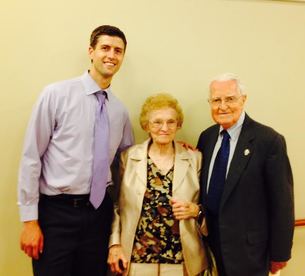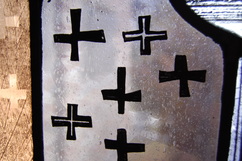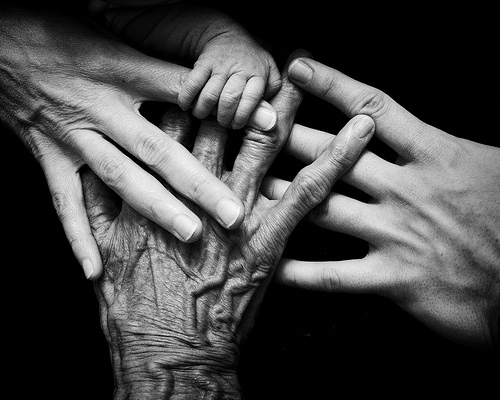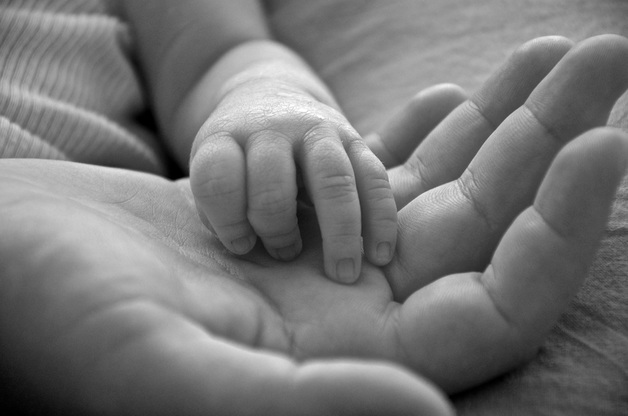Even if I knew that tomorrow the whole world would go to pieces, I would still plant my apple tree." - Martin Luther Is it worth all the work?
How much difference does it make? What do I do when I want to quit? Today's parents of children and young teens are the first parents in human history whose kids have known smart phones and tablets from infancy. The iphone came out in June of 2007. It has completely changed the way we gather information, relate, and spend our time.
A big question is "When do we get our child a phone?" Having recently outfitted our 13-year-old, I'll share our approach. I recognize that some will think we're too strict and others will think we're too loose. This is not meant to be law. My hope is simply that it's useful as you consider your own circumstance, whether you're a tween, parent, grandparent, or guardian. This article was first posted on Mother's Day 2016.
Mother's Day is approaching. For some, it's anything but a sentimental Hallmark card or pleasant Sunday brunch. Motherhood is filled with surprises, and many of them are difficult. As you prepare to celebrate Mother's Day, consider all the situations in which women find themselves. Be sensitive to the many circumstances that exist. Pray for those who are living through a variety of situations. Here are a few. The older I get, the more I’m tempted. Tempted to be: Rigid. Pessimistic. Irritable. Stuck. I have to admit, the more I mature, the harder it is for me to worship. To trust. To pray. Today I have more control over my life than I’ve ever had. I have more financial security. More independence. More freedom to make my own decisions and choices. But with more control comes more temptation. The temptation of power and pride. The temptation that I can do it on my own. The temptation that I don’t really need God. The older I get, I sense God calling me to be younger. Here's my audacious goal: By the end of this post, you will be younger. The room was packed for the preschool Christmas program. I was sitting near the aisle with my camera in hand. My son Joshua was Joseph that year and his friend Claire was Mary. I was prepared to document the entire event.
The procession commenced. As the kids walked in, I spotted Joseph and Mary, holding hands. Totally precious. I fumbled with my camera, trying to capture the moment. Unable to get the cap off the lens, I reached for my phone to get some video. I was looking down . . . pushing buttons. By the time I was ready, the kids were already up front. I missed the entire entrance. But there was Joshua, in his Joseph garb. He picked me out of the sea of faces and waved. “Hi, Dad!” He didn't care about the pictures. He just wanted my attention. At that moment, I made a vow. "I’m going to stop documenting this event and instead simply be at this event." This applies to much of our life, especially in December. We are obsessed with doing at the expense of being. We live in the second half of the second decade of the 21st century. In this era, our worldview is defined by the word "instant." No need to travel to a library. We have instant access to information. No waiting to develop photos. We have them instantly on our phones. No waiting to see a friend 1,000 miles a way. Facetime them instantly. No waiting to reorder toilet paper. Push the button and instantly Amazon will ship. Maybe even by drone. We live for the moment. We want things immediately. We expect results now. We ride the 24 news cycle and swipe through our friends' feeds - all streaming instantly. But if we only live in the moment, we miss out on a worldview that the faithful have had for millennia. Mother's Day is approaching. For some, it's not as pleasant as a Hallmark card and brunch after church. Motherhood is filled with surprises, and not all of them are good.
As you prepare to celebrate Mother's Day, consider all the situations in which women find themselves. Be sensitive to the many circumstances that exist. Pray for those who are living through a variety of situations. Here are a few. A stillbirth. A miscarriage. There is a peculiar pain when you lose a child that you held, but never met.
What do you say? How do you go on? If you know someone struggling after losing a child, first give them a hug. Sit, be, and cry with them. And after a "ministry of presence," here are some things to say at stillbirth or miscarriage.  Longevity and fidelity are harder and harder to come by these days. We glorify the fast-paced instant gratification of an always changing world. Let's reclaim the patient, long-term, gut-it-out, in-for-the-long-haul persistence that most of life requires. Anyone can do something for a day. Try doing something day after day for 60 years. Last Sunday, I was honored to participate in the renewal of vows for my dear friend and colleague, Ed Dubberke, and his wife Joan. They walked to the front of the chapel, arm in arm, just as they had 60 years ago. They repeated their vows to one another . . . "in sickness and in health . . . until death parts us." And they asked all in attendance to join them in praising God.  What is the baseline of knowledge for a Christian? Martin Luther referred to three components as "the minimum of knowledge required of a Christian" (Large Catechism). Just as a craftsman knows the fundamentals of his craft, every Christian ought to know: The Creed The Ten Commandments The Lord's Prayer And not simply to recite them, but practice and grow in them. Meditate, pray, live, explore their implications, institute them in daily life. The Creed ("I believe") states who God is and what he does. The Ten Commandments are God's intended picture of what it means to live a human life. The Lord's Prayer is how we are to relate and communicate with the living God through all of life's challenges. Two factors of modern society make these three baseline components evermore important. 1.) We live in a complex society. Therefore simplicity provides a focus that cuts through the overwhelming volumes of information that exist. 2.) We live in an increasingly post-Christian society. So the basic tenets of Christianity take on greater significance. When "everyone went to church," the creed was less provocative. As fewer people speak the creed, it grows more profound. Luther recommended weekly examinations on these three components. Tell me how that goes in your home. Even if you don't quiz yourself or your family, his point was to never believe that you've mastered the basics. The basics are a depth to be mined for a lfietime. A well with no bottom. We are always living with what we believe (creed), how to live (commandments), and how to call on God through the trials of life (Lord's Prayer). Luther noted, "These have been the heritage of Christendom from ancient times . . . so that all who wish to be Christians in fact as well as in name, both young and old, may be well trained in them." At my church, we begin a series on the Ten Commandments on April 19th. "Set Free to Live Free." |
JOIN My Tribe
|










